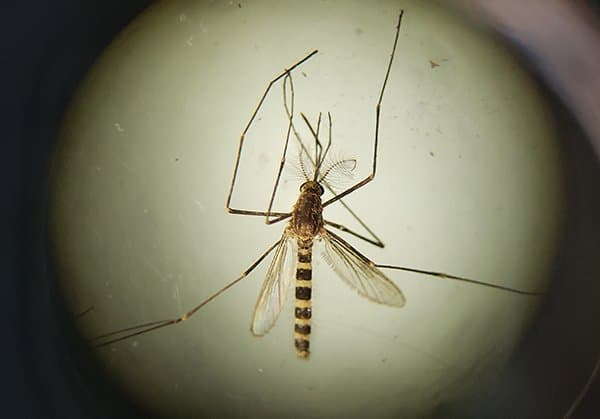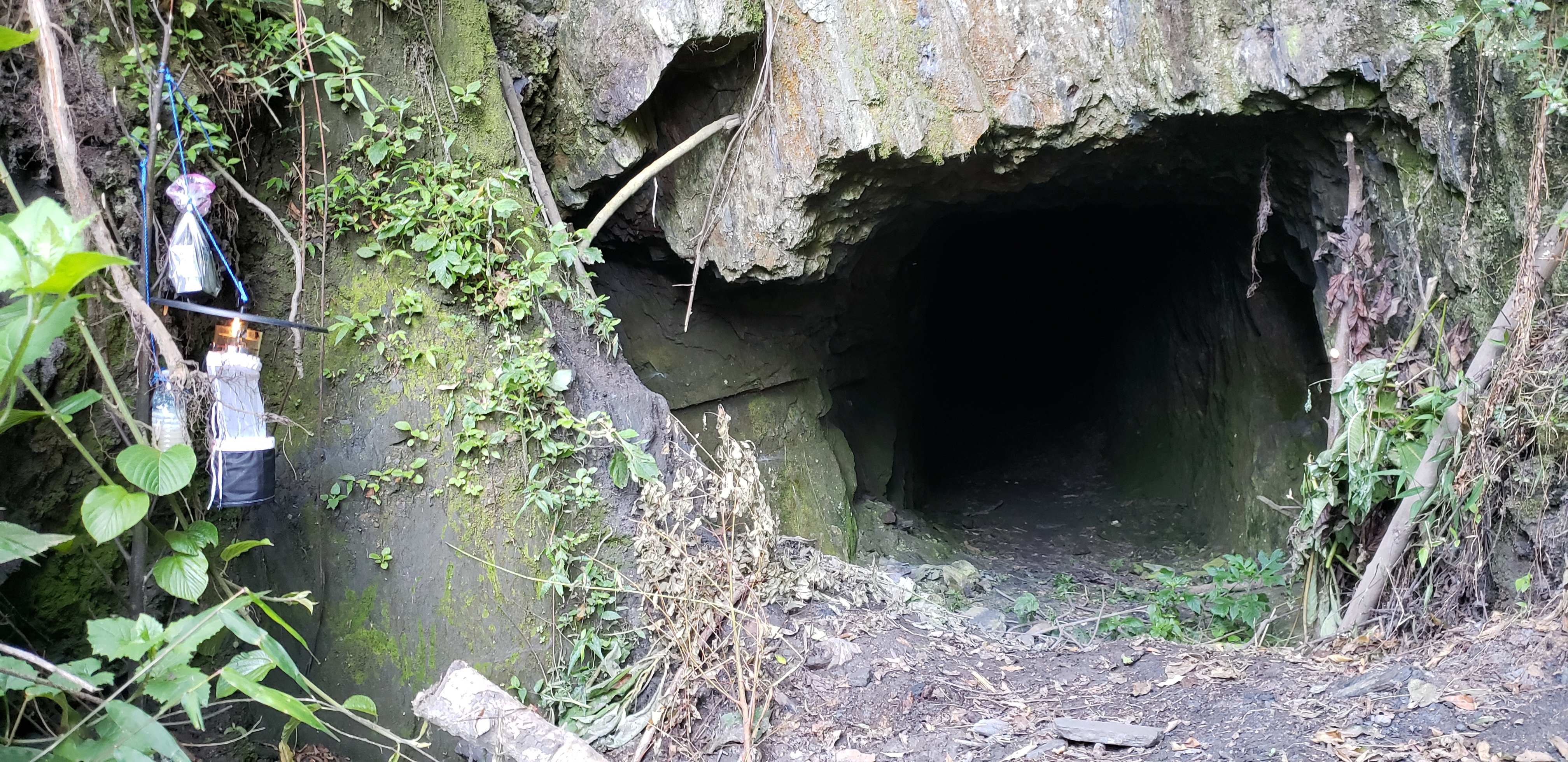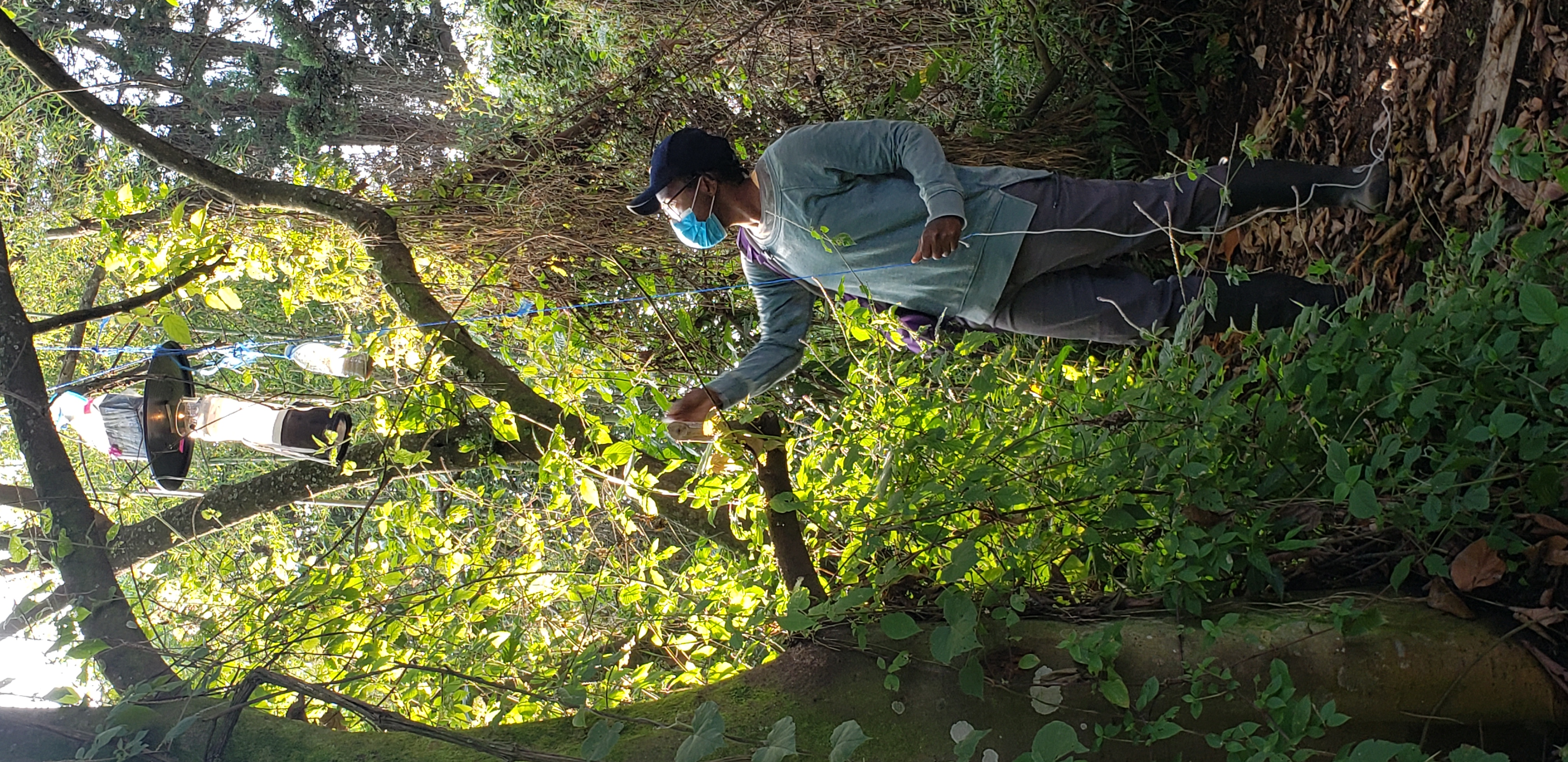ORIP-Funded Veterinary Scientist Studies Disease Dynamics in Uganda

Mosquitoes are pervasive around the globe, with more than 3,000 species across all continents except Antarctica. Many people regard these insects as little more than a nuisance. When Dr. Jalika Joyner looks at mosquitoes, however, she now sees something more (Figure 1). “Most of us never really look at mosquitoes; you see one on your skin and immediately swat it away,” she said. “But looking under the microscope, seeing the complexity of their features and colorations—they’re actually pretty cool.”
Dr. Joyner explained that many scientists, when assessing the risk of disease spillover, overlook the potential influences of the mosquito within the environment. Mosquitoes can act as disease vectors, transmitting diseases both among and between animals and humans. Dr. Joyner, a veterinary postdoctoral fellow at the University of California, Davis, was sponsored by ORIP through the GloCal Health Fellowship to study mosquito feeding behavior and ecology. She is interested in understanding how disease spillover risk differs among intact forest and residential areas within Uganda’s Bwindi region.
The Bwindi region represents a unique environment, Dr. Joyner explains. It is home to the Bwindi Impenetrable National Park (BINP), which exhibits a remarkable level of biodiversity. This rich and largely untouched forest is located adjacent to residential communities. The region is a popular destination for ecotourism due to the presence of eastern mountain gorillas in the area.

“You have this pristine forest, yet there are so people who live adjacent to park border and many others who frequent the park for tourism, to transverse between communities, and to monitor the wildlife,” Dr. Joyner reflected. “That’s what really drew me in. It is almost a perfect natural-world experiment because we get to see how these mosquito populations differ between the forest, the forest–community border, and within communities in a natural setting.”
Dr. Joyner worked with a team of researchers to collect mosquitoes along this geographic gradient (Figure 2). She is interested in understanding which species are present in the area, as well as their feeding patterns. Ultimately, her work will provide insight on the potential for the mosquitoes to spread viral disease within the region.
The GloCal Health Fellowship supports 12 months of mentored research for investigators interested in studying diseases and conditions in low- or middle-income countries. The program also supports and encourages participants to engage in capacity building within their selected country. The GloCal Health Fellowship is one of seven consortia that form the Launching Future Leaders in Global Health Research Training Program (LAUNCH) at the NIH Fogarty International Center (FIC).

As a fellow, Dr. Joyner was a part of the EpiCenter for Emerging Infectious Disease Intelligence, which represents a consortium of investigators in the United States, Uganda, and Peru. She was in Uganda from October 2021 to July 2022, collecting mosquitos in and around the BINP and performing follow-up laboratory processing at the Uganda Virus Research Institute (Figure 3).
Dr. Joyner’s research is focused on the One Health approach, which aims to better understand the connections that exist among the health of animals, people, plants, and the environment. She first became interested in this topic while pursuing her veterinary degree, when she began learning more about zoonotic diseases—infections that are spread between humans and other animals. “We would talk about how as a clinician, you need to educate the client on diseases that they can pick up from their pets,” she recounted “I wanted to expand that—to look at how the transmission happens not just on individual level but at a population level. Because everything is connected at the end of the day.”
The topic of One Health has become increasingly relevant in recent years, and Dr. Joyner emphasized the importance of continued research in this area. “As we keep expanding where we live and move into these more pristine natural areas, like the rainforest and wetlands, we are increasing our contact spaces with this wildlife, including vectors,” she explained. “So, it’s important for people to realize that what we do can affect our health as a population.”
Now, as a Ph.D. student at the University of California, Davis, Dr. Joyner plans to expand her research to examine the roles of other organisms—including ticks and bats—on zoonotic disease transmission within the Bwindi region. She underscored the importance of the GloCal Health Fellowship in providing opportunities for young researchers to perform long-term field research in an ethically sound, inclusive way.
This award represents a collaborative effort between ORIP and the FIC to advance the career of a veterinary scientist engaged in basic and applied research. As a part of its strategic mission, ORIP works in partnership with other NIH Institutes, Offices, and Centers to create and maintain a variety of resources to advance biomedical research, including investing in career development and training programs designed to enhance the expertise and diversity of investigators working with animal resources. ORIP supports research training opportunities for veterinary scientists to capitalize on their distinct perspective, as their expertise is rooted in a deep understanding of comparative medicine and insight into animal models for human diseases. More information on ORIP-supported opportunities can be found on ORIP’s Training and Career Development page.



